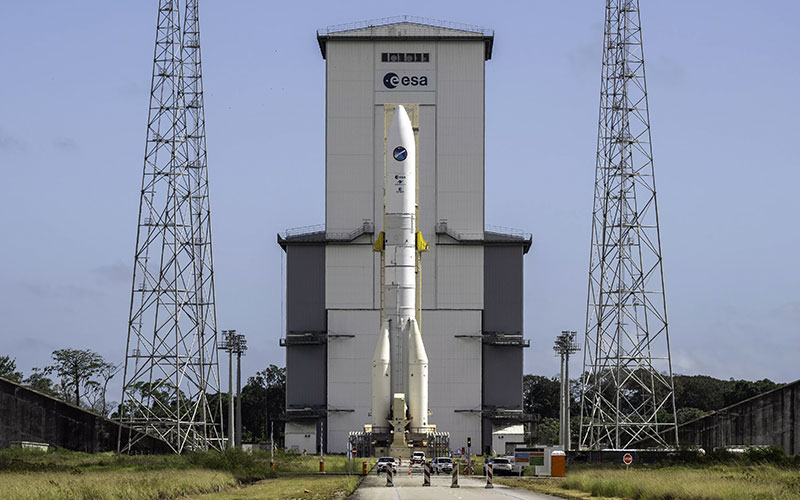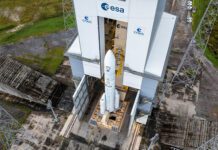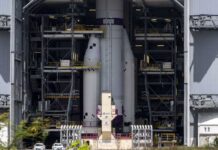
With the completion of fuel line and umbilical disconnection testing, the European Space Agency and its project partners have successfully completed all major Ariane 6 ground tests, paving the way for a mid-year debut.
On 30 January at the Guiana Space Centre, ESA, CNES, and the project’s prime contractor, ArianeGroup, completed a rehearsal of the moments that will lead up to the ignition of the Ariane 6 P120C boosters and Vulcain 2.1 core stage engine. This process involves the disconnection of the upper and lower fueling arms that support the umbilicals that supply Ariane 6 vehicles with liquid hydrogen and oxygen.
With the fuel line and umbilical disconnection systems now certified as ready to support the first flight of Ariane 6, the test article, which was first unveiled in June 2023, has completed its mission. This marks a major step in ESA’s preparation to launch the first Ariane 6 flight, which is currently expected to take place between 15 June and 31 July.
The final stage of the Ariane 6 combined testing will be the disassembly of the test article. In addition to clearing the pad for Ariane 6 Flight Model 1, this phase of the testing will also validate ground teams’ ability to safely disassemble and remove the launcher from the pad in the event of an anomaly occurring.
The first and second stages of Flight Model 1 are expected to begin the transatlantic journey from mainland Europe to French Guiana soon. The Ariane 6 transport ship Canopée is currently moored in Bordeaux while being prepared for the journey.
While preparations for the maiden flight of Ariane 6 appear to be going smoothly, technical investigations into an aborted upper stage test are still underway. The test was conducted on 7 December and was expected to last 680 seconds. However, after just two minutes, the test was aborted. According to ESA, based on the results of the analysis that has been performed thus far, “the launch period for the Ariane 6 inaugural flight is unchanged.”




